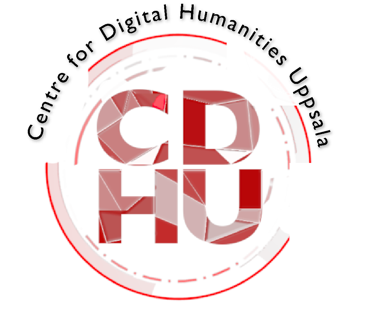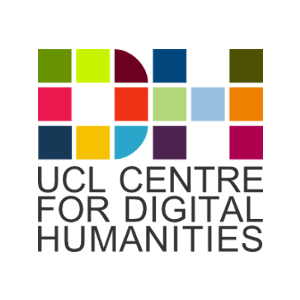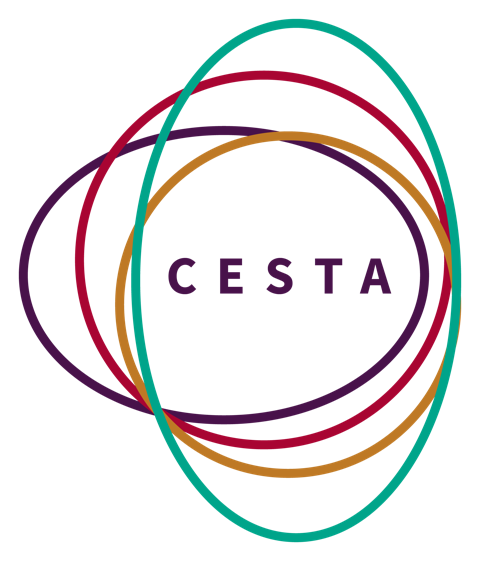March 10, 2021
Multilingual Publishing in Digital Humanities
Riva Quiroga, The Programming Historian
View the talk
Abstract: With the recent launch of Programming Historian em português in January 2021, the project hit a new milestone: a version in a fourth language. But being a multilingual Digital Humanities skills journal is much more than just publishing in different languages. In this talk, Riva Quiroga discusses a multilingual approach to developing sustainable lessons and editorial workflows, and in fostering an open, diverse and inclusive community of editors, writers, and readers.
Riva Quiroga is Managing Editor of Programming Historian en español, which publishes novice-friendly, peer-reviewed, Spanish-language tutorials for use in digital humanities research and teaching. Riva is also the co-founder of R-Ladies Santiago & Valpariso, a global organization whose objective is to promote gender diversity in the R community, and co-founder and chair of the annual LatinR conference.
Response by George Cooper and Victoria Rahbar:
Riva Quiroga’s talk on the mission of The Programming Historian to democratize access to quality tutorials on digital tools, workflows, and processes which “fill the gap left by university teaching in the humanities” provides an excellent pedagogical framework on how to bring digital scholarship to the multilingual world we live in rather than the Anglocentric world the digital humanities was founded in. This mission is achieved due to an open publishing process hosted on GitHub for the journal and a workflow which aims to develop tutorials “for humanists by humanists.” The expressed purpose of these tutorials is to serve readers as students, readers as teachers, and readers as researchers who may not be able to express their information need yet have a desire to address research problems using digital means - to make the electronic device you are reading this summary on be something more than the fancy typewriter featured at the start of Riva’s talk. While the innovative use of GitHub as a transparent platform for the peer review process by the global staff of The Programming Historian was remarkable, Riva’s commentary on acknowledgements, culture and power, safe space, and the role of language in multilingual publishing is what really sets her work apart as well as pushes the global audience to rethink how we can do better. Riva tells us that when the tutorials are translated to languages other than English, and more importantly initially published in languages other than English, the journal successfully begins to close “the gap between the digital skills needed by humanists in the non-English world, and the [English-language] learning resources that already exist.” This leads to her final point which affirms that The Programming Historian is not an Anglocentric publication and will continue its efforts in addressing and dismantling privilege in academia in an equitable, diverse, and inclusive working environment.
The discussion following Riva’s talk centred around original content in languages other than English, licensing, incorporating new languages, metadata standards, outreach activities, and the combination of paid/voluntary labour and institutional support required to develop, translate and update The Programming Historian resources. The expanded digital humanities community that Programming Historian has fostered via translation has generated a number of original, non-English-language tutorials. Riva expects that a growing number of original digital humanities resources will be translated into English, rather than from English to other languages. Programming Historian ensures that the existing terms of access and reuse are preserved by means of a CC-BY license which allow for commercial adaptations of tutorials and other publications of the journal. This license also allows other individuals to translate the resources into languages not currently supported, for example languages that don’t use a Roman alphabet, like Mandarin or Arabic. There are already some resources translated into Japanese, for example. The Programming Historian GitHub repository hosts guidelines for authors, editors and reviewers, documents on metadata standards and technical tutorials for new languages. As well as expanding the linguistic breadth of The Programming Historian resources, there are plans to develop online events to learn more about how people are using them and how they can be improved for teaching and research. All of these resources and activities rely on a combination of paid and (mostly) voluntary labour, charitable donations and institutional support. The Programming Historian platform gives recognition to the many volunteers that work on the resources, via the contributors page. Individuals and institutions that are aligned with the objectives of The Programming Historian team can support the project via Patreon.
Riva’s talk emphasised the extent to which the language constraints of academic publications – journals in particular – represent barriers to open scholarship. The discourse around openness in academic publishing tends to focus on issues of access to published content, less so on the obstacles that authors face when submitting to publications with ambiguous language criteria, or the time and expense involved in translating work into a second language. Industry bodies like the Committee on Publication Ethics ought to establish standards for language guidelines in academic journals. Publishers should consider the Programming Historian’s guidelines on writing for a global audience, if only one language is possible. Publishers should also consider both the ethical and commercial value of investing in translation services on behalf of authors, given the potential to grow and sustain copy in new and emerging academic disciplines – especially as more academic publishers pivot towards service-oriented Open Access business models.
Respondents:
George Cooper is a PhD candidate at University College London’s Department of Information studies, researching theoretical and ethical issues related to censorship and the provision of access, by publishers, to online scholarly resources. Alongside his research, George manages a list of anthropology journals for Routledge and gives seminars and workshops on publishing ethics and the use of 3D, AR and VR in academic journals. You can reach him at @georgekupar.
Victoria Rahbar is a second-year graduate student at Stanford University’s Center for East Asian Studies. Her primary research interest is exploring the history of manga in Japan and North America, and the print and digital history of manga globally. If you’re interested in digital publishing and digitalization for Japanese-language materials, please reach out to her via Twitter @v_rahbar.


